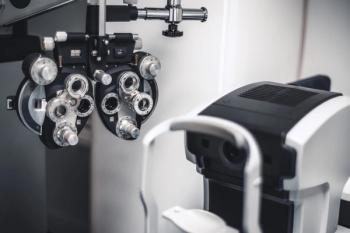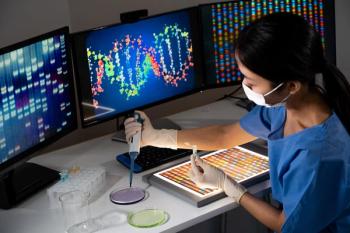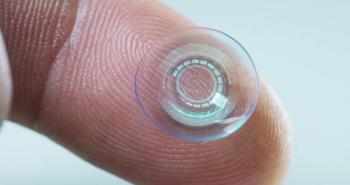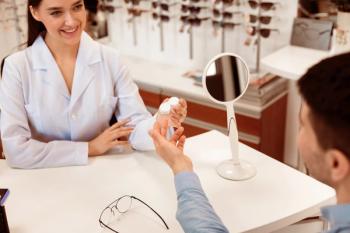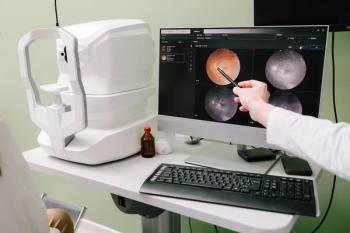
AAOpt 2024: Acknowledging ophthalmic home remedies to build patient trust
Damaris Raymondi, OD, FAAO, highlighted the importance of building patient-doctor trust to learn about these practices, which can include non-traditional treatments like chamomile or manuka honey eye drops.
Damaris Raymondi, OD, FAAO, discussed her lecture at the American Academy of Optometry meeting, which focused on the use of alternative and home remedies by Latino patients. She highlighted the importance of building patient-doctor trust to learn about these practices, which can include non-traditional treatments like chamomile or manuka honey eye drops. Raymondi emphasized the risks associated with non-sterile or improperly sourced remedies, such as infections from unverified sources. She advocated for educating patients on legitimate treatments and using motivational interviewing to ensure compliance and improve health outcomes.
Video transcript:
Editor's note: The below transcript has been lightly edited for clarity.
Damaris Raymondi, OD, FAAO:
Hi, I'm Dr Damaris Raymondi, and I practice optometry at NYC Health and Hospitals Metropolitan, and my practice Sur Eye Care, [is] located in Jackson Heights, Queens, New York. We're at Academy Indianapolis 2024, and I gave a lecture on an evidence-based exploration on ophthalmic home remedies, or remedios caseros oftálmicos. It was part of the Salud SIG Symposia, which explores different health outcomes that might affect Latino patients and how Latino doctors can also learn from the evidence that is out there in the literature. So our symposia this time, the first part covered different alternative medicine practices, complementary medicines. We learned a little bit about curanderismo, which is typically practiced in Latin America. We also learn about different African cultures and the different herbs that are used. And from that, we went on to how some patients might actually come in and say that they've used these alternative things in their eyes, that they've used chamomilee ye drops, manuka honey oil eye drops, and how they're managing their diabetes with different natural supplements in lieu of traditional medicine. And we searched the data; we went through the literature and saw what complimented this, whether it really was efficacious, whether it was a sham, we looked into all that.
Once we learned all that, my part of the symposium was where we uncovered, how do we even get patients to talk to us about this? Because it takes a lot for a patient to even come into your chair, but for them to trust you enough to say, "Hey, I tried my grandma's homemade honey recipe for my eye drop for my eyes. And I did eye drops out of them." They have to have a trust between the patient and the doctor for that to be revealed. So I went over how that trust was developed, how to build patient doctor rapport, and I also went into different other modalities as well. So I went into developing that doctor patient rapport, and I went into, let's see, yes, motivational interviewing, how, via motivational interviewing, that's how we can get patients to tell us these things, how we can get over non-compliance or non-adherence, and just yeah, building that trust open dialog, so that we know what patients are up to, and we can course correct or tell them, hey, this is something that you can do, which is what we need, so that patients can live healthier and happier lives and see better too. One big thing that kind of encompasses all of these home remedies is that we don't know how they're prepared.
So, in terms of course correction, it's so important for a patient to let us know that this they're doing this, because they may be we may be dealing with techniques that are not aseptic, that are not sterile, which can put this patient's eye at risk. It also leads us, once we find out that they're using drops, we may find out that they got them from eBay, that they got them from a non-verified Amazon source. And same thing as we've seen lately in the news with eye drops that are produced in factory facilities in recent times, and those were found to be sources of infection, more so it would be the case with an eye drop that was just given, like by a corner store or by a family member. So that's where we come in, and it's important for a patient to be able to tell us, "hey, I've been doing this. I haven't been using the glaucoma drops," and we can step in and make sure that they're using things appropriately and not getting confused. So it's so important for us to be aware of what is out there, what's legit, what's kind of halfway legit and homeopathic, and what is just like completely, to us might seem mind boggling and not useful, but to a patient, that's probably the answer that they've been looking for. So we want to provide them the education and those answers.
Newsletter
Want more insights like this? Subscribe to Optometry Times and get clinical pearls and practice tips delivered straight to your inbox.


